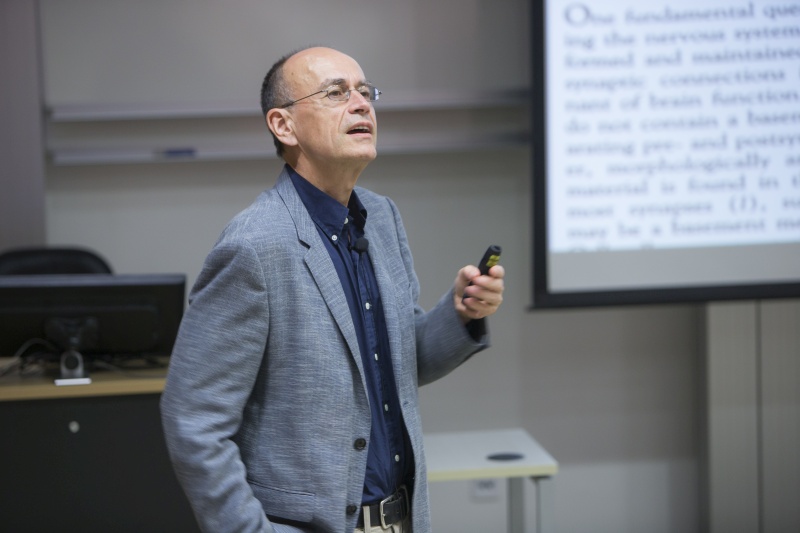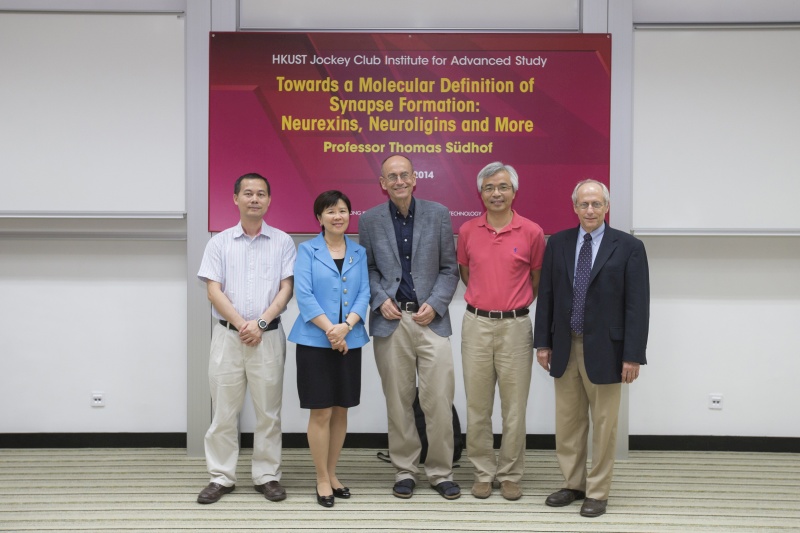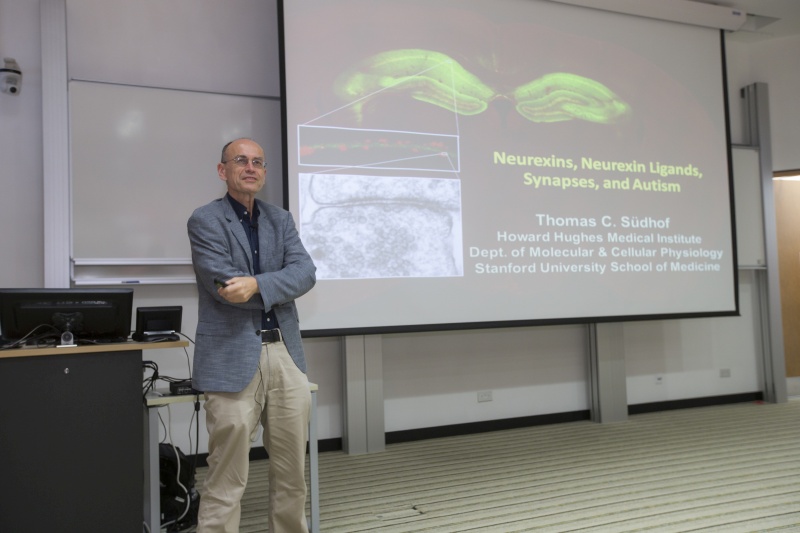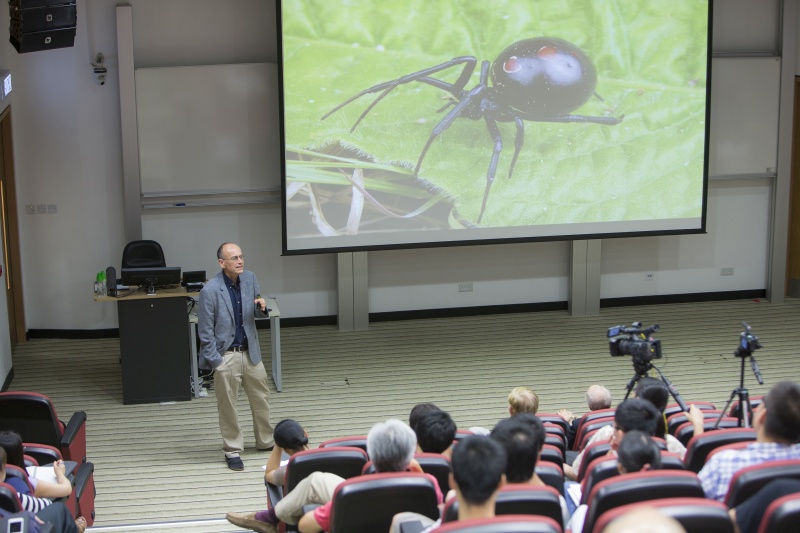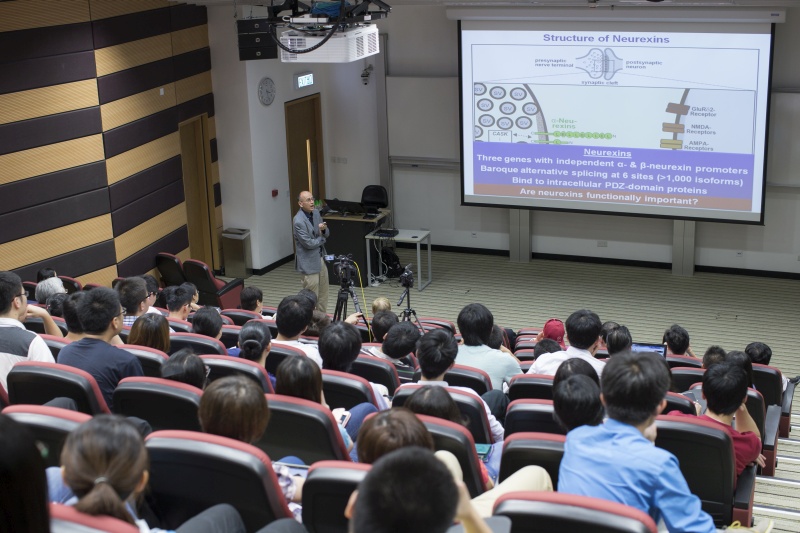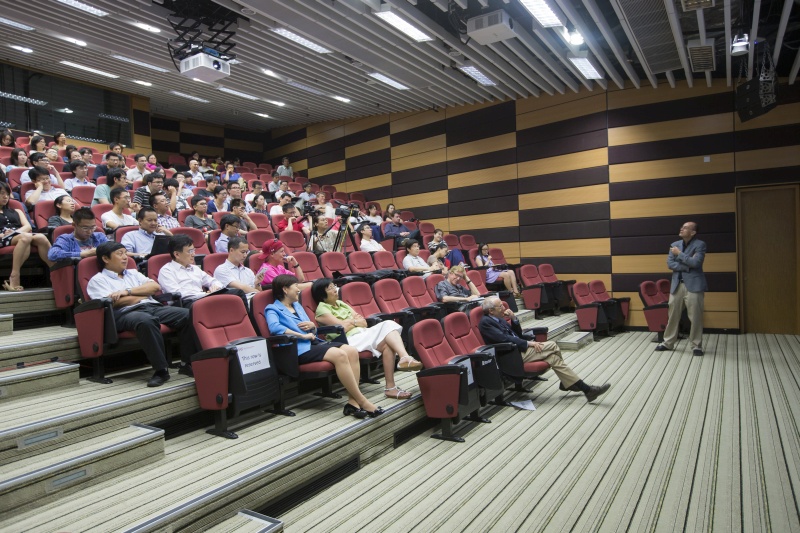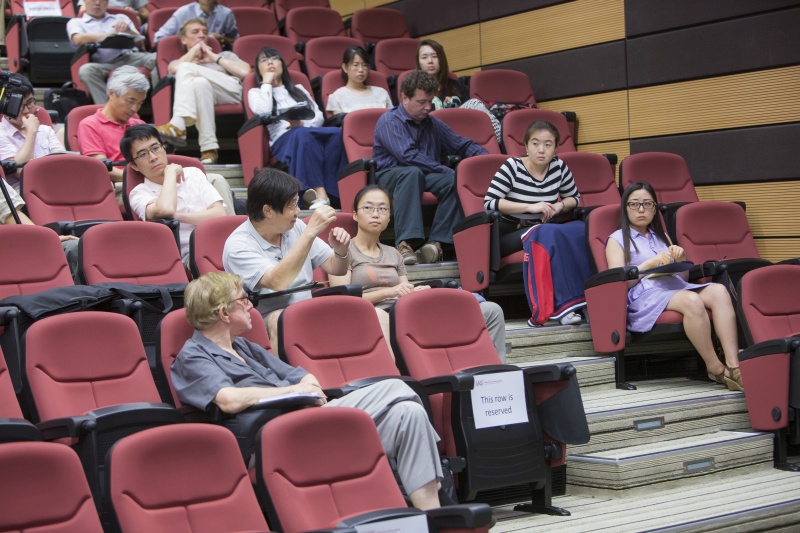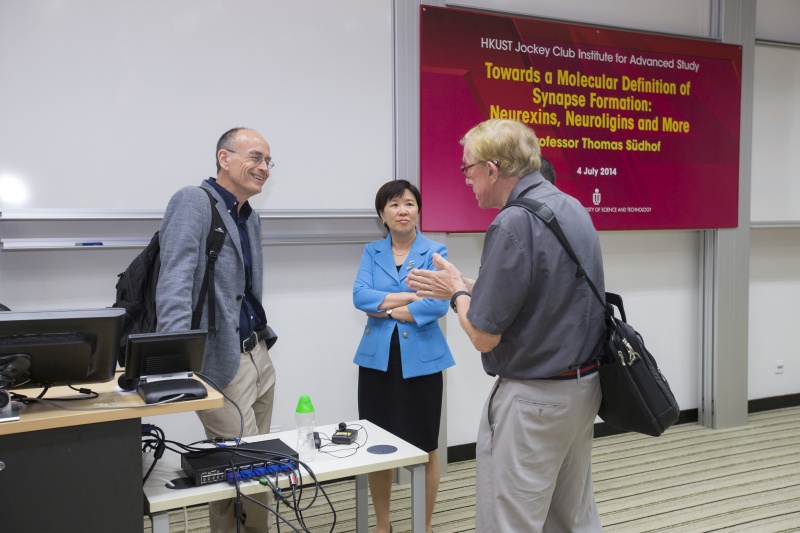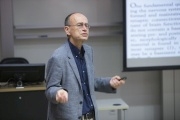Towards a Molecular Definition of Synapse Formation: Neurexins, Neuroligins and More
About the speaker
Prof. Thomas Südhof received his MD from the University of Göttingen in 1982 and his PhD from the Max Planck Institute for Biophysical Chemistry in 1983. He was postdoctoral fellow at the University of Texas Southwestern Medical Center (UT Southwestern) from 1983 to 1986. He served on the faculty of UT Southwestern until 2008, and among others was the founding chair of the Department of Neuroscience at the institution. He moved to Stanford University in 2008, and is currently the Avram Goldstein Professor of the School of Medicine.
Prof. Südhof is interested in how synapses are formed and function during development and in the adult. His current research focuses on the role of synaptic cell-adhesion molecules in shaping synapse properties, on pre- and postsynaptic mechanisms of membrane traffic, and on impairments in synapse formation and function in neuropsychiatric disorders. To address these questions, his laboratory employs approaches ranging from biophysical and biochemical studies to the physiological and behavioral analyses of mutant mice and the in vitro derivation of human neurons.
In 2013, Prof. Südhof was awarded the Nobel Prize in Physiology or Medicine, together with Prof. Randy SCHEKMAN and Prof. James ROTHMAN, for their discoveries of machinery regulating vesicle traffic, a major transport system in our cells. He also received numerous prestigious awards including the US National Academy of Sciences Award in Molecular Biology, the Albert Lasker Award for Basic Medical Research, the Kavli Prize, and the Bernhard Katz Award from the Biophysical Society, etc. He is a Member of the US National Academy of Sciences and the Institute of Medicine.

